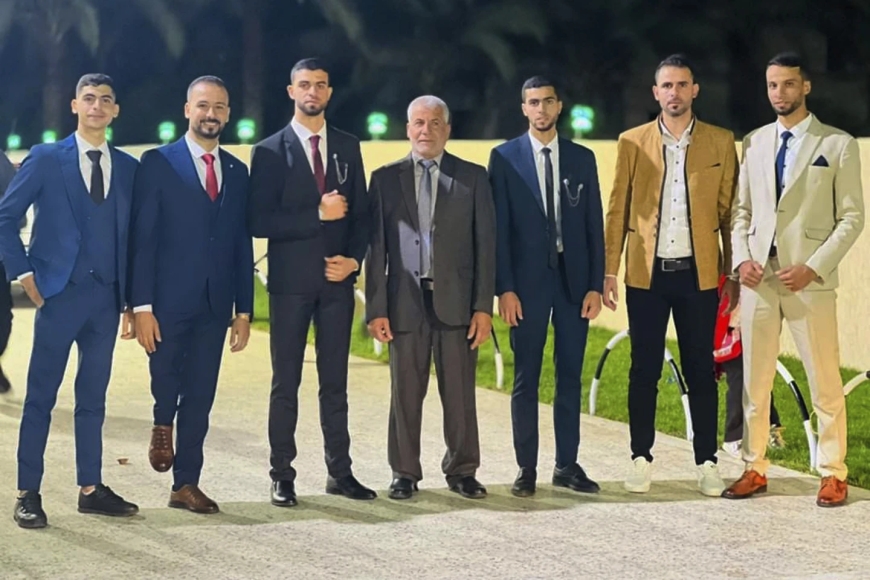War in Gaza Decimates Palestinian Families: An Unprecedented Toll
Israel’s air and ground campaign in Gaza has led to the unprecedented loss of entire Palestinian families, with hundreds of relatives wiped out in a conflict that has severely impacted the small, densely populated community

Israel’s air and ground campaign in Gaza has led to the unprecedented loss of entire Palestinian families, with hundreds of relatives wiped out in a conflict that has severely impacted the small, densely populated community. The Associated Press conducted an in-depth investigation into 10 specific strikes between October and December, revealing a tragic toll of over 500 casualties, many from the same families.
AP’s analysis, supported by consultations with weapons investigators, open-data analysts, and legal experts, alongside data from Airwars, a London-based conflict monitor, identified numerous residential buildings and shelters targeted with no apparent military objectives or warnings. In one particularly harrowing instance, a family had raised a white flag on their building, located in a combat zone, to signal non-combatant status.
Historical Context and Contemporary Impact
This conflict has proven deadlier than the Nakba in 1948, when approximately 20,000 Palestinians were killed during the mass displacement following the establishment of Israel. Rashid Khalidi, a Palestinian-American historian at Columbia University, emphasized the scale of current losses, noting, “I don’t think anything like this has happened in modern Palestinian history.”
Case Studies: Families Decimated
Al-Agha Family (31 killed): On October 11, an airstrike obliterated Amin al-Agha’s home in western Khan Younis, killing 11 family members, including his son’s wife and children. Just days later, another strike killed 10 more relatives. The November 14 strike on a second cousin’s home killed another 10, leaving the survivor, Awni al-Agha, to die of heartbreak months later.
Abu Naja Family (20 killed): On October 17, Israeli airstrikes in Rafah killed 20 members of the Abu Naja family, including pregnant women and children. Airwars noted that one of the deceased was identified as a militant on social media, yet the surrounding family members were non-combatants.
Tarzai and Souri Families (20 killed): An October 19 airstrike on a Gaza City church sheltering displaced families resulted in 20 deaths, including members of the intermarried Tarzai and Souri families. Israel claimed the target was a Hamas command center; however, Amnesty International criticized the strike as reckless, amounting to a war crime.
Jabalia Refugee Camp (Over 130 killed): One of the deadliest strikes occurred on October 31, when Israeli bombs hit the densely populated Jabalia refugee camp. Airwars identified at least 112 civilians killed, with 47 from the Okasha and Abou al-Qoumsan families. The true death toll remains uncertain as bodies continue to be unearthed from the rubble.
Doghmush Family (44 killed): On November 15, a strike on a mosque in Gaza City killed 44 members of the Doghmush family, including their patriarch and several children. Despite the family’s known feud with Hamas, the mosque was targeted, allegedly for harboring militants, though the family disputes any militant presence.
Salem Family (173 killed): Two separate airstrikes in December destroyed shelters housing the extended Salem family, resulting in 173 deaths. The first strike on December 11 killed 80 family members, while the second on December 19 claimed 90 lives. Survivors described scenes of carnage and devastation, with bodies unrecognizable except by identification documents.
Maghazi Refugee Camp (At least 106 killed): On December 24, strikes on homes hosting displaced Palestinians in Maghazi resulted in at least 106 deaths. Videos and hospital records confirmed the destruction, with the Israeli military admitting to a mistaken strike on adjacent structures, a rare acknowledgment of error.
Broader Implications and Responses
The impact of these strikes extends beyond immediate casualties. Emily Tripp, director of Airwars, highlighted the immense challenge of documenting the civilian harm, noting that entire family trees were decimated. The widespread loss has profound implications for the Palestinian community, with generational trauma and a significant demographic impact.
International responses have varied. Human rights organizations like Amnesty International have condemned the strikes as potential war crimes, urging thorough investigations. Meanwhile, Israeli military officials defend their actions as necessary for combating Hamas, despite the collateral damage to civilian lives.
The conflict in Gaza continues to escalate, with devastating consequences for Palestinian families. The extensive civilian casualties underscore the urgent need for a ceasefire and comprehensive peace negotiations to prevent further loss of life. The international community faces a critical moment to intervene and address the humanitarian crisis in Gaza.













































